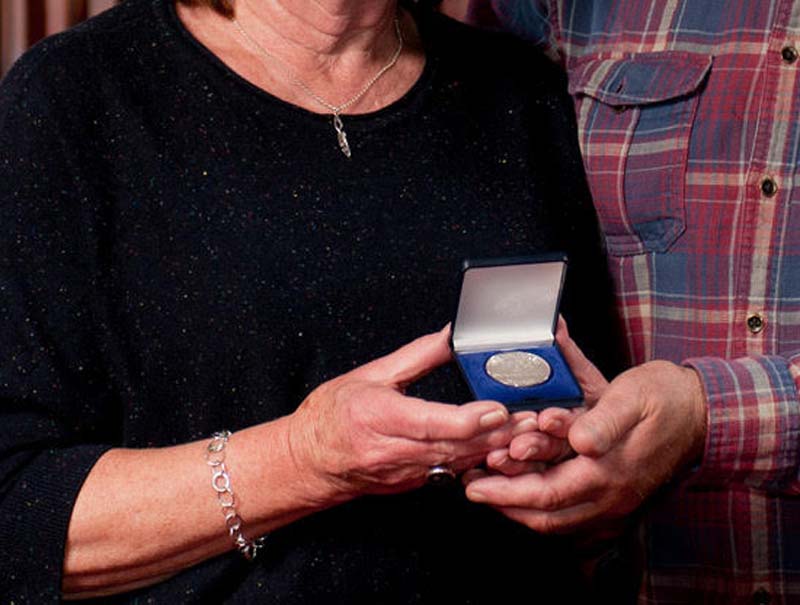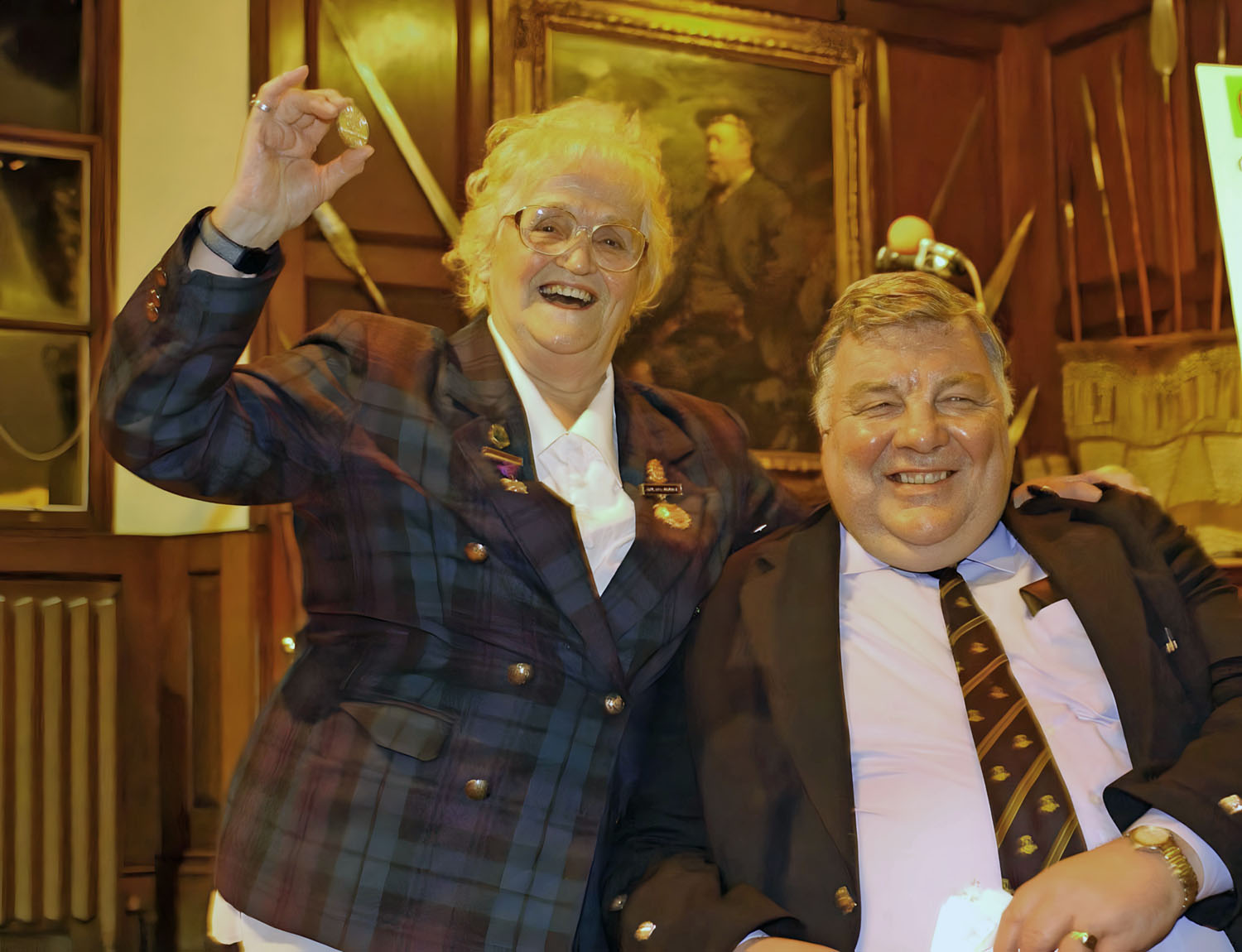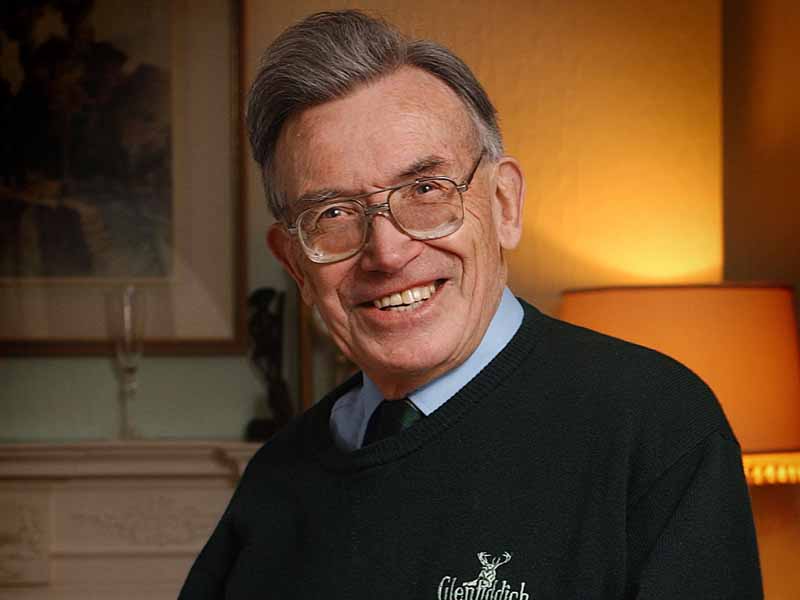The Balvenie Medal: How to nominate a deserving recipient
 The Balvenie Medal was first awarded in 1985 to the Duke of Atholl for providing his castle and members of his private army for the running of the Glenfiddich Solo Piping Championships, the de facto World Championship for Highland pipers.
The Balvenie Medal was first awarded in 1985 to the Duke of Atholl for providing his castle and members of his private army for the running of the Glenfiddich Solo Piping Championships, the de facto World Championship for Highland pipers.
Like the Glenfiddich itself, the Balvenie Medal is named for a whisky brand created by William Grant & Sons, whose late patriarch, Sandy Grant Gordon, personally underwrote the staging of the competition.
The Balvenie Medal’s recipients are a who’s who of the solo piping world, populated with people renowned for their piping prowess and more meaningful contributions to the art. Generally, they never require payment for their services.
In 2023, the William Grant Foundation, the charitable arm of William Grant & Sons Distillers, transferred the management of the Glenfiddich to the National Piping Centre, along with the organization of the Balvenie Medal. The NPC and William Grant Foundation have formalized nominations to ensure the award is administered fairly and without bias, welcoming nominations through a vetted process.
A two- or three-page letter doesn’t have to be huge. It could be bullet points or could be written out in paragraphs they think best reflect their nominee. – Helen Urquhart, Balvenie Medal organizer
Helen Urquhart, Head of Events with the National Piping Centre, organizes the Glenfiddich and the Balvenie Medal.
We connected with her to understand more about the new approach to nominations:
If you feel there’s someone in the piping world who has selflessly and tirelessly contributed to the art throughout their lifetime, asking for nothing in return, go to the Balvenie Medal information page about the nomination criteria and process and make your submission before the March 31st deadline.
Here’s a transcription of our discussion with Helen Urquhart (edited slightly for clarity).:
pipes|drums: It’s pipe strums, and we are pleased to have Helen Urquhart with us. Helen is the head of events for the National Piping Centre and a key person in the Balvenie Medal nominations process, which takes place every year at the Glenfiddich Solo Piping Championship. Thanks a lot for taking the time to meet with us.
Helen Urquhart: Thank you for having me. It’s exciting to chat about this project.

p|d: Many changes have happened over the last couple of years since the National Piping Centre took over the Balvenie Medal. Tell us what the Medal is all about.
![2010 Balvenie Medal recipient Rona Lightfoot [Photo Derek Maxwell]](https://www.pipesdrums.com/storage/2025/02/Lightfoot_Rona_Balvenie_2010.jpeg)
p|d: The Medal has been awarded since the earliest days of the competition. What kind of people do you think are the ideal recipients of the Balvenie Medal?
HU: It’s a fantastic project because there are many different recipients. I think this year is going to be the forty-first awarding. It started in 1985, and the Duke of Atholl was the first recipient, and that was for his contribution to the development of the Glenfiddich Piping Championship. He lent the Atholl Highlanders, who are still the event’s stewards every year. People like Rose Fletcher have been awarded Rona Lightfoot, Malcolm McRae, and then internationally, outwith Scotland, Christian Bicudo from Brazil, Jackie Pincet from Brittany – people who maybe you wouldn’t immediately think of. There’s such a wide variety of people who have been awarded, and it is all about their contribution and the exceptional passion that they have the way they have promoted the music and study and art form across their entire lives, and really bringing that essence of what it is to support the music in the art form.
![2023 Balvenie Medal winner Roddy MacLeod with his wife, Margaret. [Photo Derek Maxwell]](https://www.pipesdrums.com/storage/2025/02/MacLeod_Roddy_Balvenie_2023.jpg)
![2023 Balvenie Medal recipient Ian Duncan. [Photo Derek Maxwell]](https://www.pipesdrums.com/storage/2025/02/Duncan_Ian_Balvenie_2024.jpg)
This year, nominations close on the 31st of March. And then, after that, we will appoint a small committee of people, so that will be people from the piping center, the William Grant Foundation, and then a couple of external invited judges who we kind of wait to see who the nominees are, so that we know that it’s somebody, people that are going to be impartial and looking at across all of the nominations. We wait until after the nomination window is closed before identifying who might be best to join, and then they will meet and go through a rigourous process of looking at seven different criteria and how each nomination relates to those criteria and whittle it down to the one recipient for the year.
Last year, we had 11 nominations, which, for the first year we’d run it as an open process, was a amazing result. We weren’t sure how many nominations we would get, so 11 was amazing. We’ve had a really good response so far, and we still have another month or so to go, so I think we’ll end up with another bumper-year of amazing nominations.
![Anne Spalding, 2019 Balvenie Medal winner, with her husband, David. [Photo Derek Maxwell]](https://www.pipesdrums.com/storage/2024/01/Spalding_Anne_2019_Balvenie.jpg)
HU: It’s a fairly simple process. We’ve got the seven key criteria, and what we would just need is a letter or a kind of short essay style, including all of the details as to why they think that this person is worthy of the nomination, key dates and times and students and contribution moments and really good detail. The more they can align the letter to the criteria that we’ve set out, the more they will highlight the case as to why their nominee should be the recipient. A two- or three-page letter doesn’t have to be huge. It could be bullet points or could be written out in paragraphs they think best reflect their nominee, making sure it’s as complete as possible so that the committee have as much information about their nominee as possible so that we can make a choice from all of the worthy nominees.
p|d: It’s good to see that things are being formalized. It is good to see this great tradition, which has gone on for 40 years, the Balvenie Medal being awarded.
Balvenie Medal recipients
- The Duke of Aholl, Scotland, 1985
- Gen. Frank Richardson, Scotland, 1986
- Bessie Brown (widow of Robert U. Brown), Scotland, 1987
- Seumas MacNeill, Scotland, 1987
- Captain John A. MacLellan, Scotland, 1988
- Robert Hardie, Scotland, 1990
- James Cambell, England, 1991
- Andrew MacNeill, Scotland, 1992
- Tommy Pearston, Scotland, 1993
- Allan Cameron, Scotland, 1994
- Maclean Macleod, USA, 1995
- Duncan Johnstone, Scotland, 1996
- Donald MacPherson, Scotland, 1997
- Lt.-Col. David Murray, Scotland, 1998
- Angus J. MacLellan, Scotland, 1999
- Duncan McLellan, Scotland, 2000
- Rose Fletcher, Scotland, 2001
- Jimmy McIntosh, USA, 2002
- Willie McCallum Sr., Scotland, 2003
- Harry Denyer, Northern Ireland, 2004
- Annie Grant, Scotland, 2005
- Ian McKay, New Zealand, 2006
- Andrew Wright, Scotland, 2007
- Iain MacFadyen, Scotland, 2008
- Malcolm McRae, Australia, 2009
- Rona Lightfoot, Scotland, 2010
- Jimmie McGregor, Scotland, 2011
- Jackie Pincet, Brittany, 2012
- Ian McKerral, New Zealand, 2013
- Jackie Roberts, Scotland, 2014
- Catherine MacInnes Paton, Scotland, 2015
- Tom Speirs, Scotland, 2016
- Sandy Jones, USA, 2017
- Cristiano Bicudo, Brazil, 2018
- Anne Spalding, Scotland, 2019
- not awarded, 2020
- John Wilson, Scotland, 2021
- Tom Brown, Fife, Scotland, 2022
- Roddy MacLeod, Scotland, 2023
- Ian Duncan, Scotland, 2024






NO COMMENTS YET